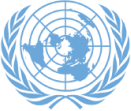ON THE AGENDA ITEM 19
16 October 2014
My delegation associates itself with the statement made by the delegation of Bolivia on behalf of Group of 77 and China on issues related to sustainable development.
The international community finds itself at a critical juncture as we strive to make the final push for MDGs and chart a post-2015 development agenda.
The Rio+20 has set in motion several important intergovernmental processes, chief among a universal high-level political forum (HLPF) trusted with a mandate to follow-up on the implementation of sustainable development. Having had two meetings over the past two years the HLPF has emerged as an important forum to help set the agenda of the entire UN system and the international community in relation to sustainable development. My delegation supports HLPF to be the main platform for reviewing and monitoring SDGs in the context of post-2015 development agenda, ensuring coordination and coherence, and advancing poverty-and-hunger eradication and sustainable development as its main objective.
My delegation welcomes the report of the Open Working Group on SDGs as a basis for integrating SDGs in the Post-2015 Development Agenda. However, the report could have better reflected the special needs of LLDCs as Rio+20 underscored the special challenges facing the most vulnerable countries, including LLDCs. We look forward to the upcoming synthesis report of the Secretary-General later this year so that to start the intergovernmental negotiations on a new development agenda.
Crafting a new transformative development agenda has to go hand in hand with instilling an effective means of its implementation. In this regard, my delegation reiterates the principal importance of financing for sustainable development, technology transfer, capacity building and enhanced global partnership.
The report of the Intergovernmental Committee on Sustainable Development Financing offers a good opportunity to link the ongoing discussions for the post-2015 development agenda with those conducted in the lead-up to the third International Conference on Financing for Development to be held in Addis Ababa next July.
Mr. Chairman,
As the SG’ report (A/69/364) clearly indicates, the world today is witnessing an upward trend in disaster risk levels threatening the livelihood of communities around the globe. For the fourth consecutive year, economic losses from disasters exceeded $100 billion, underscoring the need to reduce existing risk levels and strengthen social, environmental and economic resilience.
Risk levels are being further exacerbated by extremes in weather and climate.
The year 2015 offers an important opportunity to reverse this trend. The upcoming Third world Conference for Disaster Risk Reduction, to be held in mid-March next year in Sendai, Japan, is expected to come up with a focused, forward-looking and action-oriented outcome, building on the Hyogo Framework of Action while addressing the existing gaps in its implementation and new and emerging disaster risks.
In disaster risk reduction capacity building in early warning, disaster preparedness, risk assessment, education, aligning sector policies and resources proves essential particularly at the local and community levels. To address these issues Mongolia is implementing together with the relevant UN agencies a project (2013-2016) to strengthen local-level capacities for DRR, management and coordination. Its overall goal is to facilitate decentralized disaster management through sustainable prevention, response and coordination mechanisms thus building up resilience in urban and rural settings. It is also helping to mainstream DRR into local development planning processes.
Mongolia is an example of a country that has not contributed much to the cause of climate change, and yet it is experiencing a disproportionate impact.
The average temperature has risen by 2.1 degrees C – three times more than the world average. As a direct effect, desertification, pasture degradation and melting permafrost are threatening nomadic pastoralism, affecting almost half of our population.
The Green Development Strategy was recently approved by the Parliament with the aim to establish low-carbon and climate resilient society. The strategy follows the themes of climate change adaptation, green financing, green employment, promotion of our environmental and cultural heritage, and sustainable development governance.
Mongolia is also among the pilot PAGE countries, which will undoubtedly help us leapfrog from our current brown economy to a green economy. Mongolia is also cognizant of the high responsibility and humbled by the honor as Madam S.Oyun, Minister for Environment and Green Development has been elected as the first President of the UN Environmental Assembly.
We look forward to a constructive global partnership to underpin the post-2015 development agenda.
Thank you for your attention.


